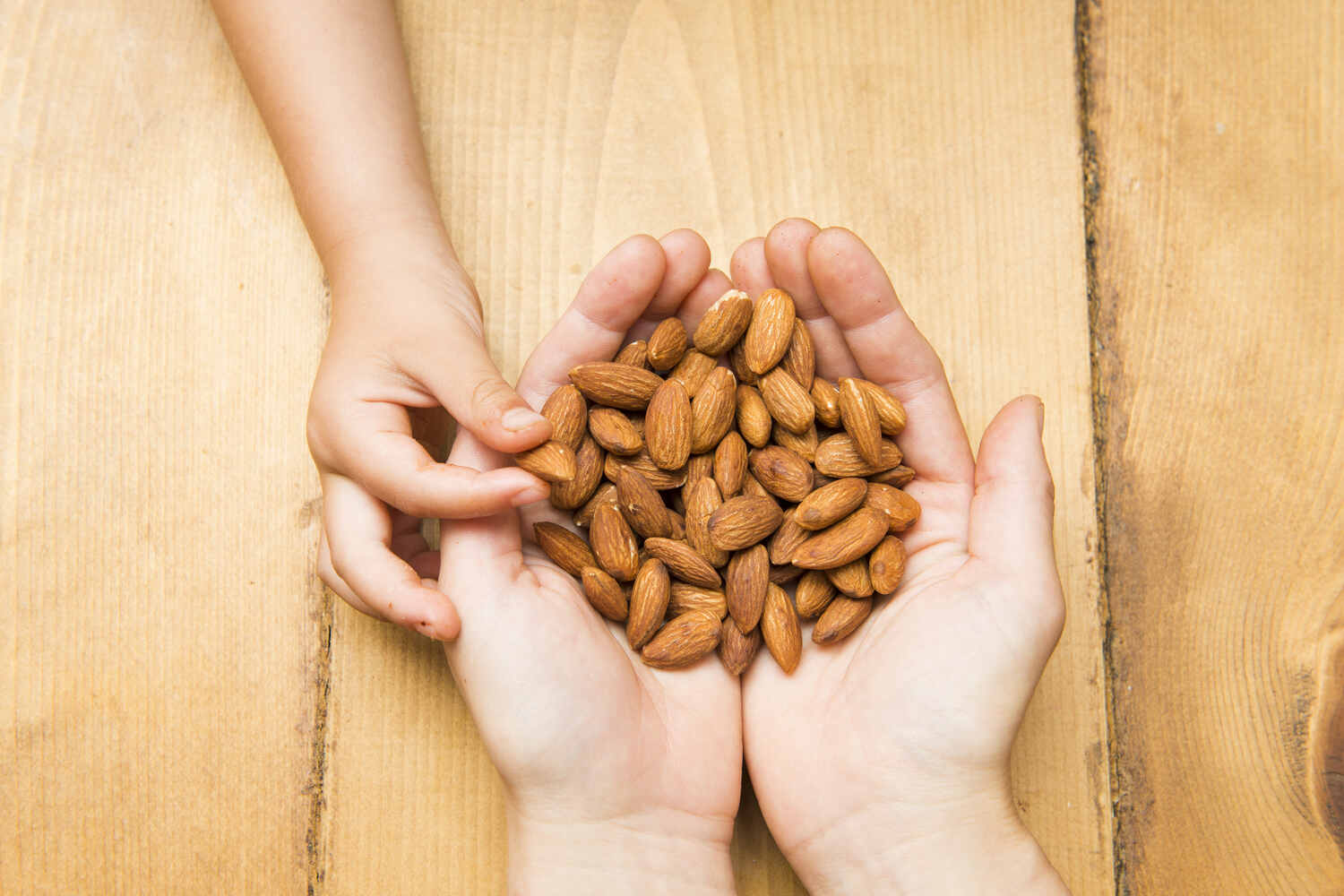
“Give them dry fruits and nuts, it’s very healthy.”
“Don’t give nuts to children, they will choke!”
As a parent, you are bound to hear such contradictory statements when it comes to giving your toddler nuts like almonds, cashews, walnuts, etc. It can be very confusing. What do you do? Almonds for toddlers – yes or no?
Nuts like almonds, walnuts, or cashews can be the perfect option for a quick snack. When one school of thought warns you about the possibility of choking, you want to be very sure before you give it to your toddler. Here is everything you need to know about almonds for toddlers.
In This Article
- What Are Almonds?
- Nutritional Value of Almonds
- How Can I Include Almonds in my Toddler’s Diet?
- Benefits of Eating Almonds For Toddlers
- Side Effects of Almonds For Toddlers
- FAQ’s
What Are Almonds?
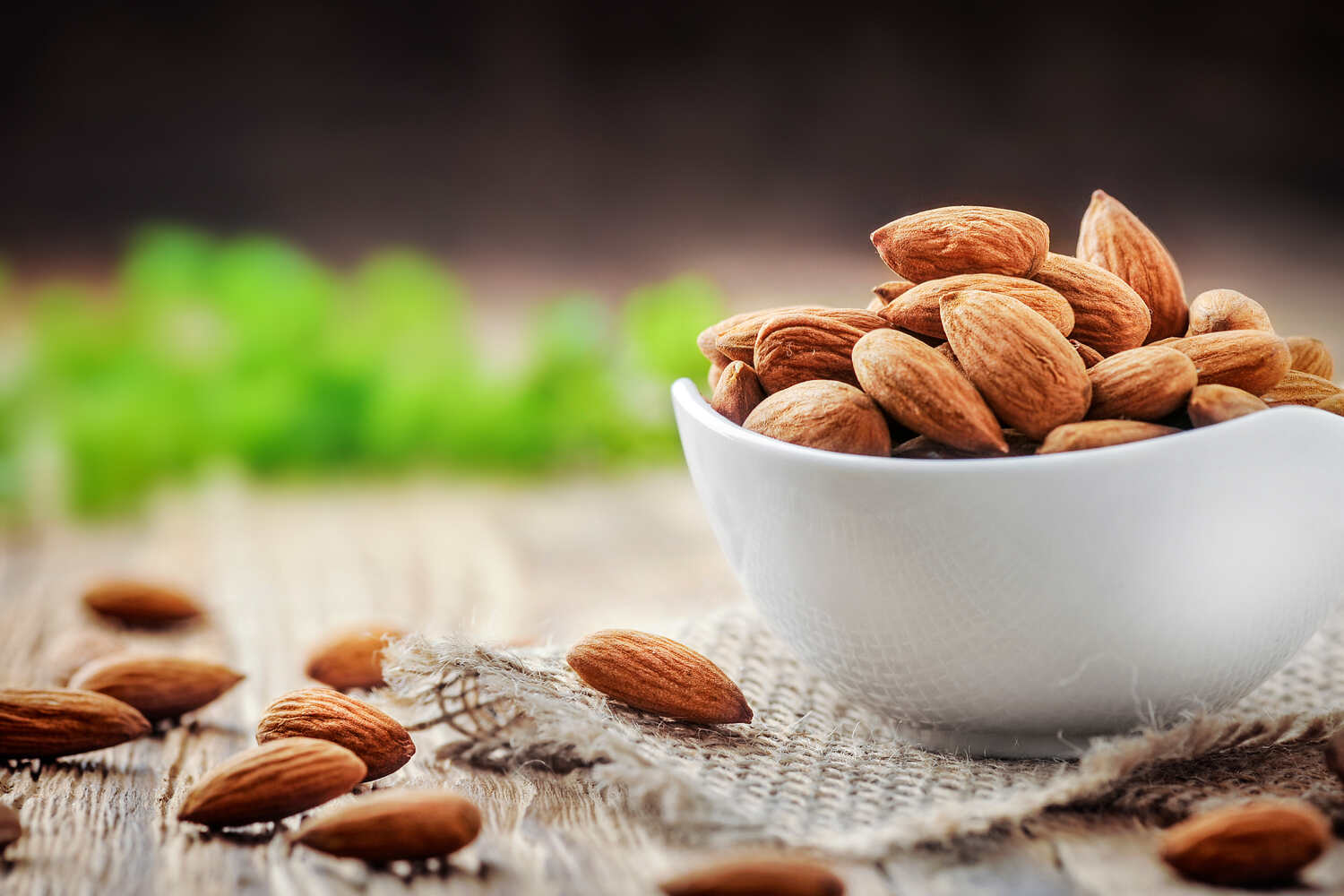
Almonds are nuts you can find on trees. Almonds are rich in essential nutrients like vitamins, proteins, carbohydrates, minerals as well as amino acids (1). They are gaining popularity as both a snack and as an addition to one’s regular diet. Almonds are dry, small, and easy to carry around. One can consume them raw, soaked, with or without the skin, roasted, or as a part of some dish. They are versatile and easy to include in almost all dishes.
Nutritional Value of Almonds
The nutritional qualities of almonds can vary depending on the environmental and genetic factors. The nutritional value of raw, roasted, and soaked almonds will vary. On average, the nutritional value of 100g of raw almonds is as follows-
| Nutrients | Value |
| Protein | 21.4 g |
| Carbohydrates | 20 g |
| Fiber | 10.8 g |
| Iron | 3.74 mg |
| Calcium | 254 mg |
| Magnesium | 258 mg |
| Phosphorous | 503 mg |
| Potassium | 733 mg |
Source – USDA (2a)
How Can I Include Almonds in my Toddler’s Diet?

Some kids love eating nuts and some will avoid them completely. If your toddler is not allergic to nuts and you want to include almonds in their diet, here are a few ideas-
- Many Indian gravies use cashews for a rich creamy texture. You can use almonds instead
- Add slivers of almonds to your toddler’s cereal, desserts, or snacks
- Almonds are an easy and healthy snack option. They are easy to carry and can satiate hunger without adding weight
- If your toddler does not like raw almonds, you can dry roast them and add light seasoning
- Powder roasted almonds and a few other dry nuts and mix them in your toddler’s milk. This can make a healthy nuts milkshake in the place of store-bought sugar-rich options
- Add a spoonful of powdered almonds to almost all foods – dosas, rice, snacks, etc.
- If your toddler prefers baked goods, you can use almond flour instead of refined flour. If your toddler does not like the taste or consistency, you can use a mixture of almond flour and refined flour
- Add almond butter on toast or to various other dishes
- Roughly blend almonds and a few other nuts and add them to a cup of yogurt for a healthy snack
- Make energy balls by blending almonds, pitted dates, honey, and unsweetened cocoa powder. You can add other nuts too. These serve as a great snack before heading out for some physical activity
Benefits of Eating Almonds For Toddlers
Regular consumption of almonds can be very beneficial for toddlers in the following ways-
1. High in Calcium

Almonds have high calcium content (2b), because of which its consumption can be beneficial in improving bone health and maintaining healthy teeth. Hence, it is important for growing toddlers to consume almonds.
2. Improves Heart Health
Regular consumption of almonds in limited quantities can help improve cardiovascular activity and reduce the risk of various cardiovascular diseases and complications in the heart (3). A healthy heart is very important for a kid’s growth and development.
3. Improves Brain Function
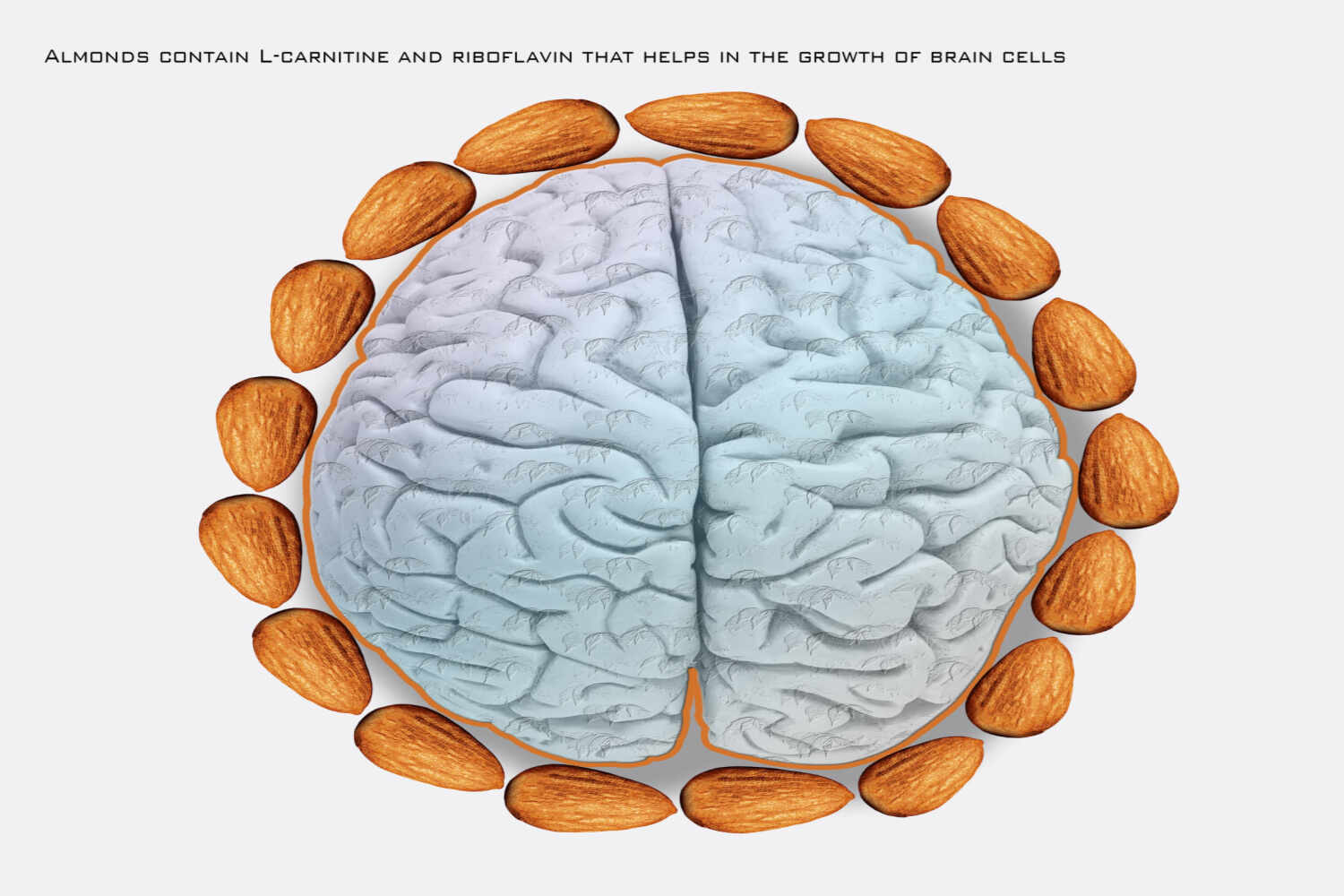
Soaking almonds overnight will increase the protein content. Protein is essential for building neurotransmitters in the brain. Neurotransmitters aid in communication between the nervous system and the cells in the body. Almonds also contain L-carnitine, riboflavin, and phenylalanine. These chemicals help in the growth of brain cells and cognitive function (4).
4. Rich Source of Fiber
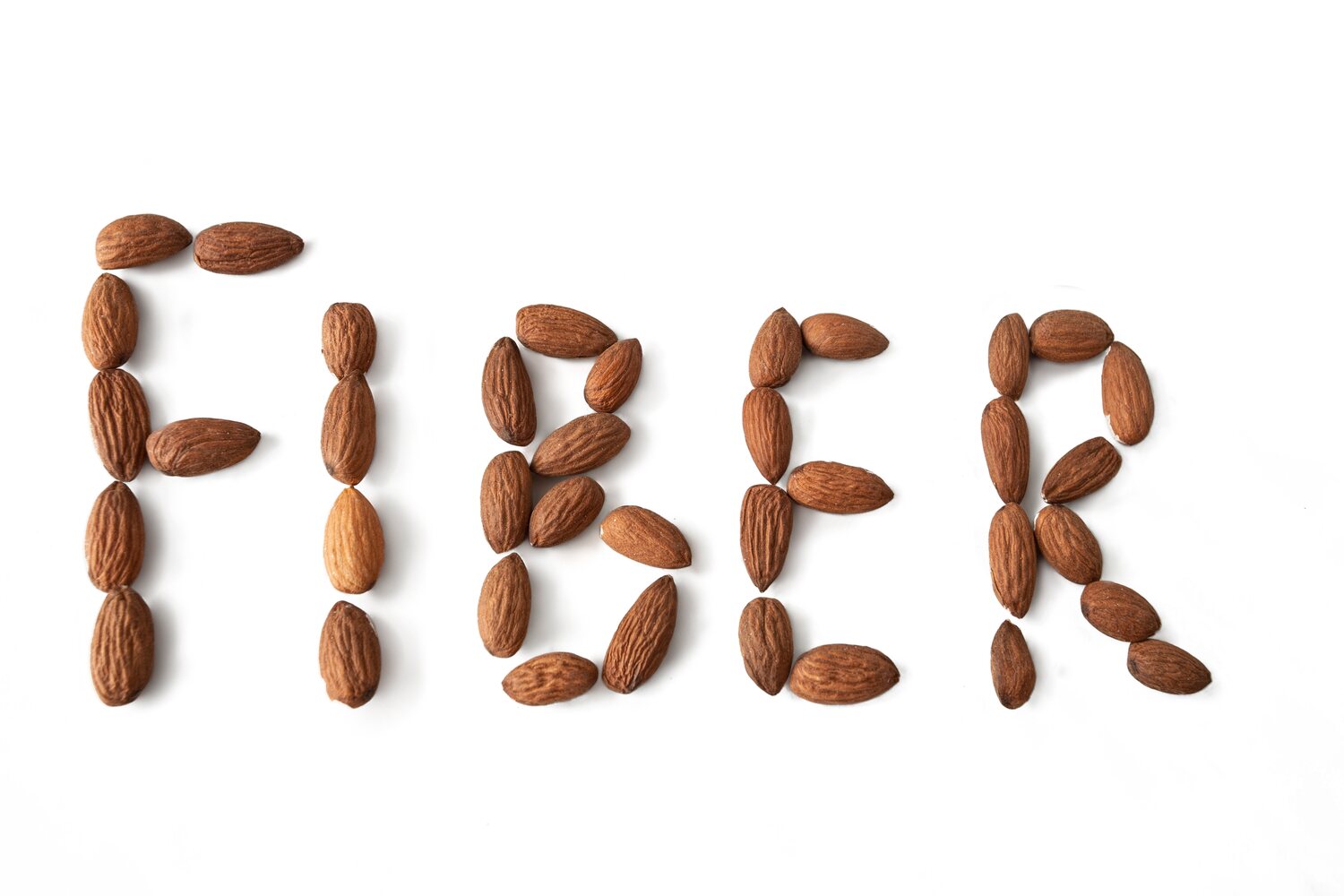
Almonds are rich in fiber – both soluble and insoluble. Fiber aids in digestion and improves metabolic health. Soluble fiber helps control blood glucose and cholesterol levels, while insoluble fiber helps improve digestion. Better digestion leads to better absorption of nutrients and prevents constipation (5).
5. Aids Overall Health

Almonds contain high amounts of unsaturated fat, which interferes with bile acid and cholesterol absorption in the body. The phytonutrients in almonds also aid in the growth of good bacteria in the gut (6). Studies also show regular consumption of nuts like almonds can reduce the risk of chronic diseases (7).
6. Rich in Antioxidants
Almonds contain high amounts of antioxidants that help reduce inflammation, prevent cancer, nourish skin, and protect cells from free radicals in the body (8). Almonds are a part of many skin care products due to the concentration of antioxidants in them.
7. Is a Source of Magnesium

Almonds have a good amount of magnesium. This mineral has several important functions in the body, like- maintaining healthy bones, nerves, muscles etc. (9) For a growing toddler, magnesium is hence an important nutrient.
Side Effects of Almonds For Toddlers
Sometimes, despite being healthy, almonds can have side effects. Some side effects you can expect or need to watch out for in your toddler are-
1. Nut Allergy
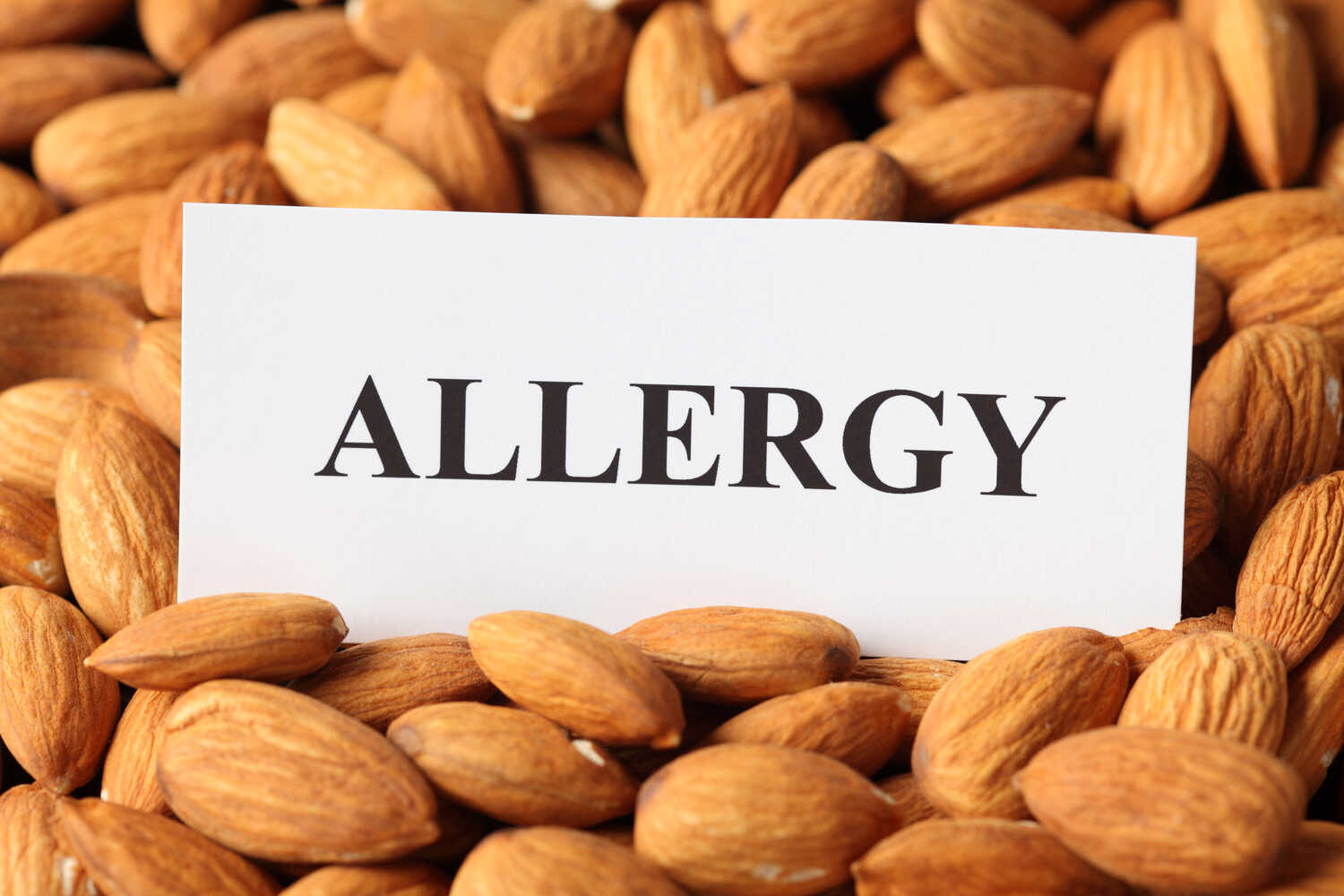
Many kids have nut allergies. While peanut allergy is very common, some tiny tots develop allergic reactions to other nuts as well. The first few times you give almonds to your toddler, watch them for reactions. You can wait a day or two before you give them more almonds. Once you are sure your toddler does not have any nut allergy, you can give them almonds regularly.
2. Choking Hazard
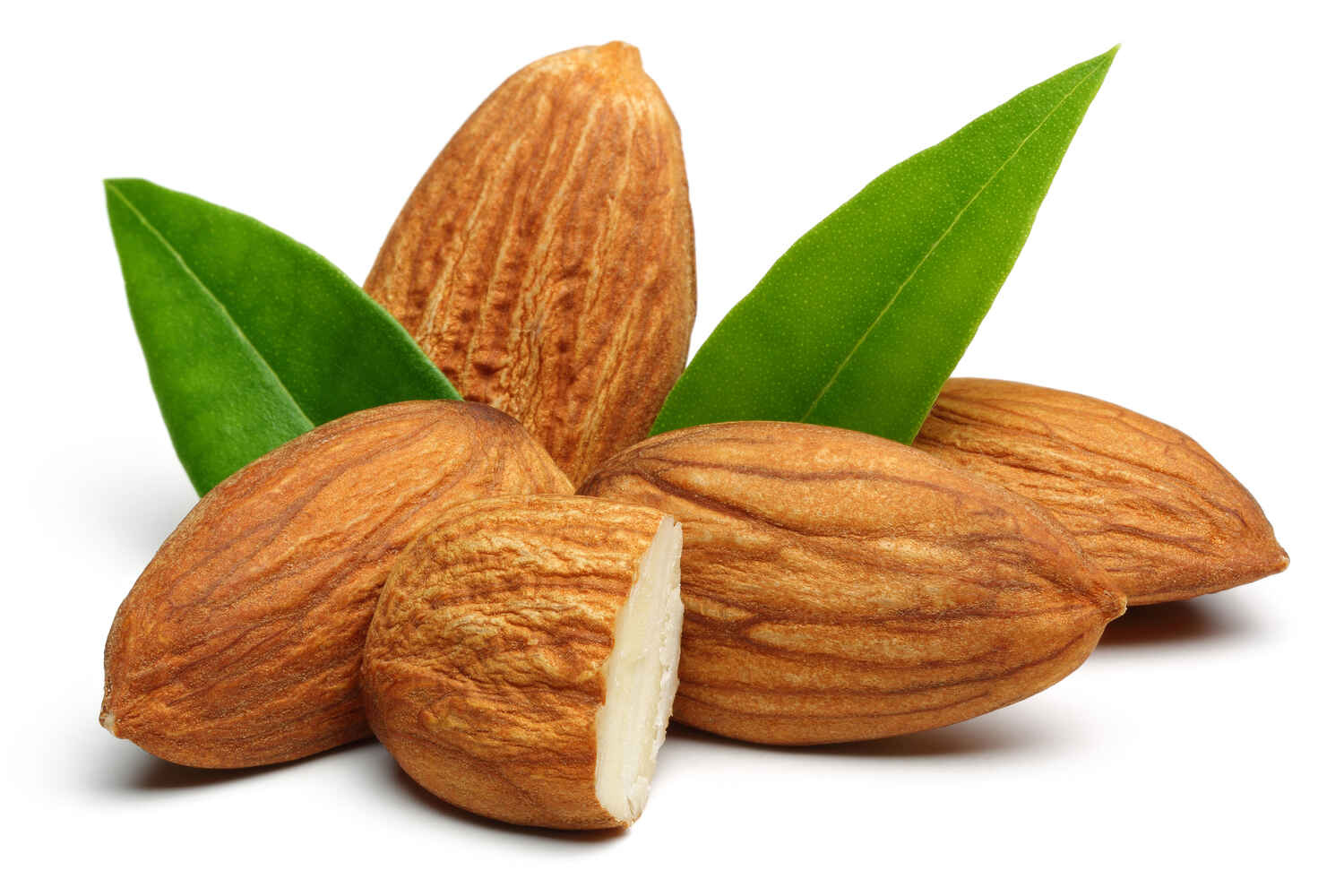
Almonds are dry and can slip into the throat easily. Keep a close watch on your toddler when they are eating almonds and other dry nuts. Stuffing too many almonds into their mouth or not chewing properly can lead to choking. Always pay close attention to young kids while they are eating nuts.
3. Constipation

Consuming too many almonds every day can lead to constipation. Almonds with skin are very rich in fiber and if the toddler’s body is unable to process it efficiently, it can lead to constipation.
4. Curbs Appetite
Snacking on almonds can help control hunger pangs. For toddlers with high metabolism, regular consumption of almonds can curb their hunger and reduce their appetite over time.
Almonds are healthy for both kids and adults. By integrating almonds into your toddler’s regular diet, you can give their health a good start, that is easy to continue as they grow older too. Unless your toddler has a nut allergy, almonds can be a great addition to their regular diet. Almonds for toddlers are a great source of nutrients and a great addition to their diet. So, go ahead and let your little one snack on some almonds.
FAQ’s
1. Can Kids Eat Almonds Every Day?
Yes, as long as your child is not allergic to almonds, daily consumption is safe. Overeating can lead to constipation and loss of appetite. So limiting your child’s almond intake is important. Children can eat them raw, soaked, or even roasted.
2. Are Soaked Almonds Good For Kids?
Yes, soaking helps to remove the almond skin easily. Without the skin, the almonds are easier to eat and absorb energy from. Soaking almonds also increases the protein content in them.
3. Are Almonds Good For Kids’ Brain Development?
Yes, almonds contain high amounts of protein, which is essential for the production of neurotransmitters in the brain. Neurotransmitters help in communication between the brain and various parts of the body. Lack of protein in the brain can lead to dementia in older age.
References
- Almonds ( Prunus Dulcis Mill. D. A. Webb): A Source of Nutrients and Health-Promoting Compounds – [https://pubmed.ncbi.nlm.nih.gov/32121549/]
- Nuts, almonds – [ https://fdc.nal.usda.gov/food-details/2346393/nutrients ]
- The nutritional and health benefits of almonds: a healthy food choice – [https://www.researchgate.net/publication/250058086_The_nutritional_and_health_benefits_of_almonds_a_healthy_food_choice]
- Repeated administration of almonds increases brain acetylcholine levels and enhances memory function in healthy rats while attenuates memory deficits in animal model of amnesia – [https://pubmed.ncbi.nlm.nih.gov/26548495/]
- Fiber – [https://www.hsph.harvard.edu/nutritionsource/carbohydrates/fiber/]
- Almonds – [https://www.hsph.harvard.edu/nutritionsource/food-features/almonds/]
- The Effect of Nut Consumption on Diet Quality, Cardiometabolic and Gastrointestinal Health in Children: A Systematic Review of Randomized Controlled Trials – [https://www.ncbi.nlm.nih.gov/pmc/articles/PMC7827804/]
- Role of Antioxidants in Health Maintenance – [https://citeseerx.ist.psu.edu/document?repid=rep1&type=pdf&doi=287c89b239a15ccc115293a889ab4b3e89e449d7]
- Magnesium in Prevention and Therapy – [https://www.mdpi.com/2072-6643/7/9/5388/htm?amp=1#]
